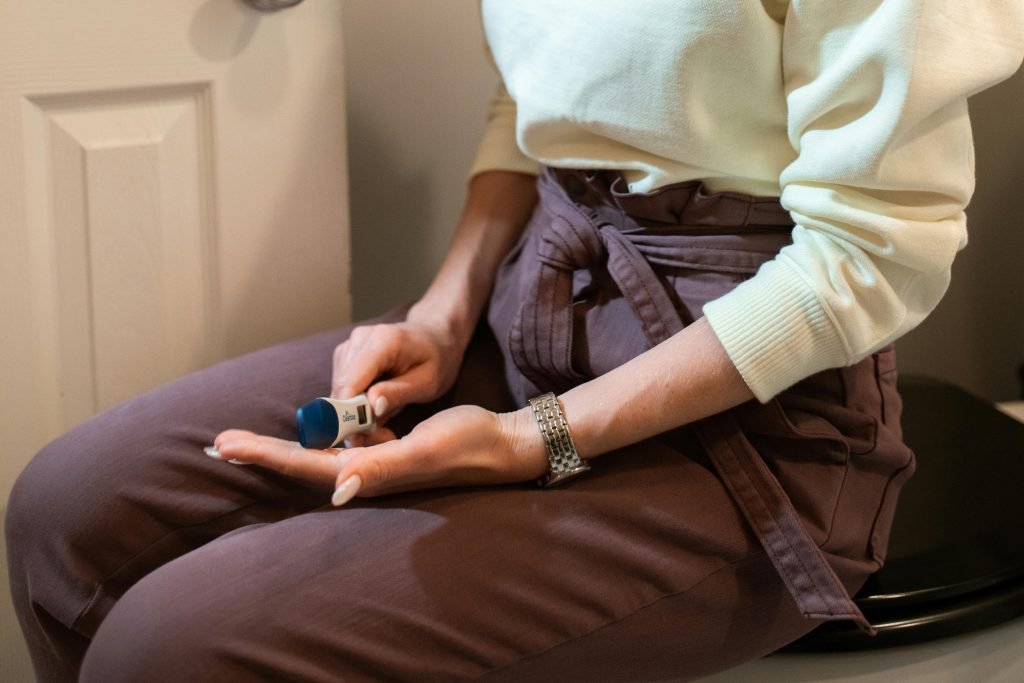
It is normal for most women to fail to realize that they are actually expecting. However, in case you are doubting your 3 weeks pregnant status, the best option is to confirm it with your OB/GYN. Once you know you are expecting, you can now choose your preferred obstetrician to keep you company throughout your expectancy period.
Development of the Baby at 3 Weeks Pregnant
As mentioned earlier, at the end of second week or early third week the egg is fertilized by the sperm. If the fertilization happens, then the baby will start to form by third week pregnancy.
Within the few hours of fertilization, the egg which is now termed as zygote starts to move from its current position to the site where it will be fixed for further growth. Usually it attaches at the posterior wall of the fundus of the uterus. But it needs about six to ten days to attach with the wall. That means this will happen in fourth week of your pregnancy. By this week the fertilized egg will divide again and again and will remain as a ball of pinhead size. It has now about 100 cells in two layers. From inner line the baby and amniotic sac will develop and the placenta will develop from outer layer.
In this week you will not feel anything from the outside. If you could able to have your egg fertilized by this week, then the newly formed zygote is on the way to uterus. But you will not get a positive pregnancy test. When the zygote is of about 100 cells, it is named as blastocyst. This form of the fetus will attach to the wall of uterus and start to produce hormones like estrogen and progesterone. These hormones give the support to the fetus until the placenta is ready.
Early Signs and Symptoms at 3 Weeks Pregnant
At just 3 weeks pregnant, your body is already working overtime behind the scenes—even if you can’t feel it yet. For most women, this week goes by unnoticed because visible signs are minimal or nonexistent. In fact, a typical home pregnancy test may still show a negative result because the hormone hCG (human chorionic gonadotropin)—the one that confirms pregnancy—is just beginning to rise.

That said, some women are more sensitive to hormonal shifts and may notice very subtle changes. Let’s take a closer look at what you might experience during this early stage.
Heightened Sense of Smell
One of the earliest and most commonly reported pregnancy symptoms is a sudden increase in smell sensitivity. Everyday scents, like your morning coffee, a coworker’s perfume, or even your laundry detergent, may feel unusually intense or even unpleasant.
This change is due to the rise in estrogen levels, which can make your nose extra alert. Some women even report nausea triggered by specific smells, especially as they get closer to week 5 or 6.
Metallic Taste in the Mouth
Another strange—but totally normal—early sign is a metallic taste, often described as “like chewing on coins” or having “pennies in the mouth.” This symptom, known as dysgeusia, is believed to be linked to hormonal changes, especially the rise in estrogen and progesterone.
While it might catch you off guard, the metallic taste usually fades after the first trimester. In the meantime, sucking on citrus candies or rinsing your mouth with a saltwater solution can help neutralize the taste.
Light Spotting or Implantation Bleeding
Around this time—or more likely in the coming days—you may notice a small amount of spotting. This is often referred to as implantation bleeding, which can occur when the fertilized egg finally embeds itself into the uterine lining (typically between days 6 to 10 post-fertilization).
It’s important to note that this spotting is usually:
- Very light in flow (not enough to fill a pad)
- Pink or brown in color
- Short-lived (a few hours to a couple of days)
If the bleeding becomes heavier or is accompanied by pain, always consult your healthcare provider.
Mild Cramping or Discomfort
Some women experience mild cramping in the lower abdomen, often described as a pulling or tugging sensation. It can feel similar to period cramps but is typically less intense. This cramping may be caused by:
- The egg traveling through the fallopian tube
- The uterus preparing for implantation
- Increased blood flow to the pelvic area
These early cramps are usually harmless, but if they become sharp or severe, it’s best to check in with your doctor.
Other Subtle Changes You Might Notice
While not as common, a few other early signs may begin to pop up, such as:
- Fatigue or sudden tiredness
- Slight mood swings or emotional sensitivity
- Changes in cervical mucus (a creamier, thicker texture)
Remember, these signs can easily be confused with typical PMS symptoms, so don’t stress if you’re unsure. Every woman—and every pregnancy—is different.
When to Take a Pregnancy Test

Even if you’re experiencing early symptoms, wait until the end of week 4 or even early week 5 to take a home pregnancy test for more accurate results. By that time, hCG levels will have risen enough to be detected.
If you’re trying to conceive and can’t wait, a blood test at your OB/GYN’s office can detect pregnancy earlier than a urine test.
Third Week Pregnancy Tips
If this is your first pregnancy, it’s completely understandable to feel a little overwhelmed. There’s a mix of excitement, confusion, and maybe even a little anxiety—all of which are perfectly normal. While the changes happening inside your body may not yet be visible, this is a crucial time to start laying a healthy foundation for the months ahead.
Even though you might not have confirmation yet from a test, if you’re actively trying to conceive or suspect you’re pregnant, it’s smart to begin adjusting your lifestyle and mindset early. Here’s how to ease into this journey with confidence.
Seek Trusted Medical Guidance Early
Once you believe—or confirm—that you’re expecting, your first step should be finding the right healthcare provider. A qualified gynecologist or obstetrician will be your key companion throughout your pregnancy, offering medical guidance, reassurance, and support.
Tips for Choosing the Right Doctor:
- Ask friends or family members for personal recommendations.
- Read online reviews, especially those from other expectant mothers.
- Consider hospital affiliations and how close they are to your home.
- Don’t hesitate to schedule an initial consultation to see if the doctor is the right fit for you.
It’s never too early to build a supportive relationship with a healthcare professional who understands your needs and values.
Stay Active and Continue Daily Responsibilities
Pregnancy is not an illness—it’s a natural part of life. Unless your doctor advises otherwise, there’s no reason to stop working or drastically alter your routine during the early weeks.
Things to Keep in Mind:
- Continue your job and daily tasks as normal, but make time to rest when needed.
- Avoid heavy lifting or strenuous physical labor.
- Stay hydrated, especially if your job keeps you on your feet.
- Don’t push yourself too hard—listen to your body’s cues.
Many women continue working well into the later stages of pregnancy. As long as you feel well and are taking care of your health, there’s no reason to pause your responsibilities just yet.
Start Nourishing Yourself and Your Baby
Even if you haven’t always paid close attention to nutrition, now is the perfect time to reassess your eating habits. What you eat will help provide the essential building blocks your baby needs to grow strong and healthy.
Diet Tips for Week 3:

- Increase protein intake to support tissue and organ development.
- Add calcium-rich foods such as milk, yogurt, leafy greens, or fortified plant-based alternatives.
- Choose iron-rich foods like lentils, red meat (if non-vegetarian), and spinach to support blood volume expansion.
- Begin prenatal vitamins, particularly those containing folic acid, which helps prevent neural tube defects.
- Stay hydrated, aiming for at least 8 glasses of water a day.
If you’re unsure about your current diet or need help creating a pregnancy-safe meal plan, consider consulting a registered dietitian or your doctor for personalized guidance.
Create a Calm and Supportive Environment
Pregnancy can be emotional—especially during the early weeks. Surrounding yourself with a positive support system makes a world of difference. Whether it’s your partner, close friends, or family members, having people to talk to can reduce stress and make the journey feel more manageable.
Take time to rest, reflect, and enjoy this new beginning. Journaling your feelings, meditating, or simply getting more sleep can go a long way in helping you feel grounded and balanced.
Bottom Line
Usually, there are no symptoms during this week of pregnancy. Some women may experience a few symptoms including increased sense of smell whereby even a little fragrance is well-sensed, change in taste, particularly the metallic taste. Tip – the best thing to do at 3 weeks pregnant is to consume a protein rich diet and take some extra calcium for both of you and your baby.
Recent Posts
You are now 15 weeks pregnant and your belly tells it all. The changes occurring to your body are significantly visible and there is no denying the fact you are excited with the turn of events....
Just like it is normal for anyone to be anxious of a new development, when you are 23 weeks pregnant your baby should be preparing for a big surprise – hearing the first sound from the outside...

